Search
Search Results
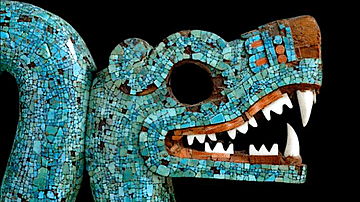
Collection
Aztec Religion & Culture
Aztec religion and culture flourished between c. 1345 and 1521 and, at its height, influenced the majority of the people of northern Mesoamerica. Great monarchs such as Montezuma imposed Aztec ideals across the area of modern-day Mexico...
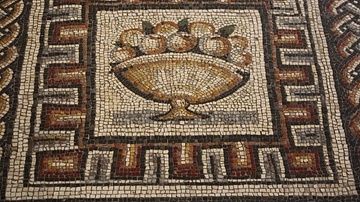
Collection
Food in the Ancient World
Meals in the ancient Mediterranean revolved around the common staples of cereals, vegetables, fruit, and olive oil, with an occasional bit of fish and meat thrown in for those who could afford it. The Phoenicians and Greeks then spread their...
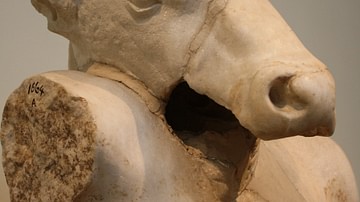
Collection
Ancient Mythical Monsters
World mythology is full of weird and wonderful creatures, monsters formed from bizarre mixes of animal parts or simply hideous beings that torment the best-laid plans of gods, heroes and humanity. Typically used to represent the disorder...
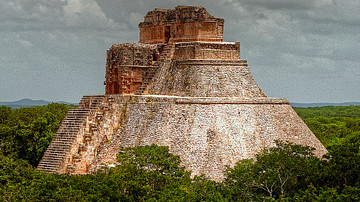
Collection
Changing Worlds: Climate & Disaster in Antiquity
Although climate change has today become a much bigger and more globalized problem than in the past, ancient peoples did have to contend with local events that severely disrupted or even ended their way of life as they knew it. A long series...

Image
Map of the Aztec Empire, c. 1427–1521 - The Rise and Fall of Mesoamerica’s Warrior Kings
This map illustrates the origins and territorial expansion of the Aztec Empire in Mesoamerica between the 14th and 16th centuries. Emerging from a network of Nahua-speaking city-states in central and southern Mexico, the empire rose to dominate...

Video
El Tajín—Veracruz—Mexico
El Tajín is a pre-Columbian archeological site and one of the largest and most important cities of the Classic era of Mesoamerica. A part of the Classic Veracruz culture. The archeological site is known by the local Totonacs, whose ancestors...

Definition
Montezuma - Last Ruler of the Aztecs
Montezuma (aka Moctezuma), or more correctly, Motecuhzoma II Xocoyotzin, meaning 'Angry Like A Lord’, was the last fully independent ruler of the Aztec empire before the civilization's collapse after the Spanish Conquest in the early 16th...
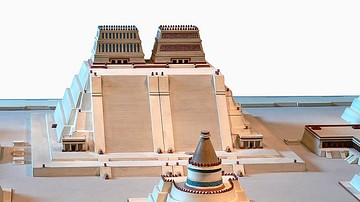
Definition
Templo Mayor - The Aztecs' Greatest Temple
The Templo Mayor or Great Temple (called Hueteocalli by the Aztecs) dominated the central sacred precinct of the Aztec capital Tenochtitlan. Topped by twin temples dedicated to the war god Huitzilopochtli and the rain god Tlaloc it was a...
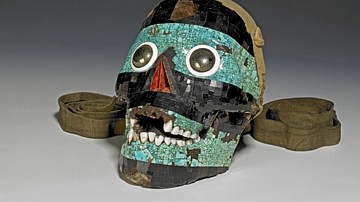
Definition
Tezcatlipoca - The Greatest of Aztec Gods
Tezcatlipoca (pron. Tez-ca-tli-po-ca) or 'Smoking Mirror' in Nahuatl was one of the most important gods in Postclassical Mesoamerican culture and particularly important for the Toltecs and the Aztecs, especially at Texcoco. He was an invisible...
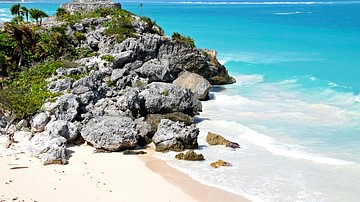
Definition
Tulum
Tulum, on the east coast of the Yucatan peninsula in southern Mexico, was an important Mesoamerican centre which displayed both Maya and Toltec influence. Tulum was a major trading and religious centre between the 11th and 16th centuries...